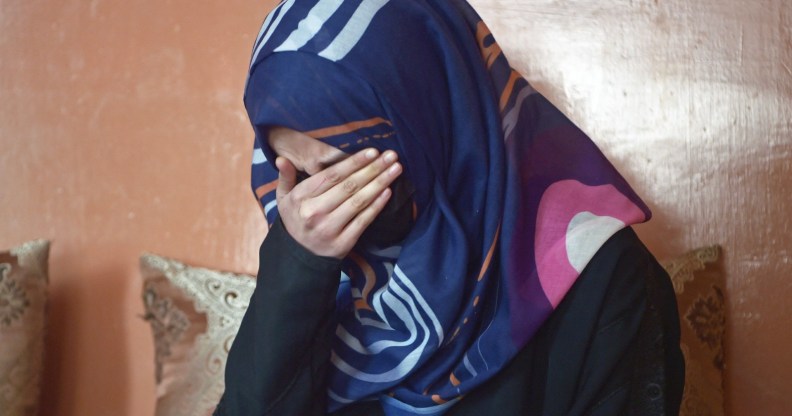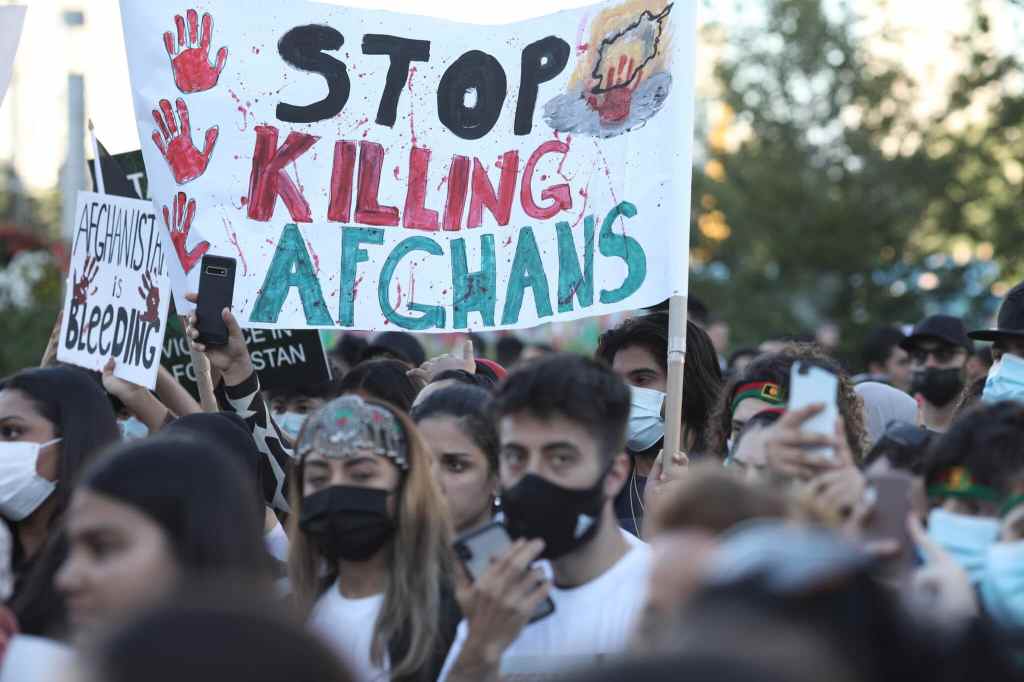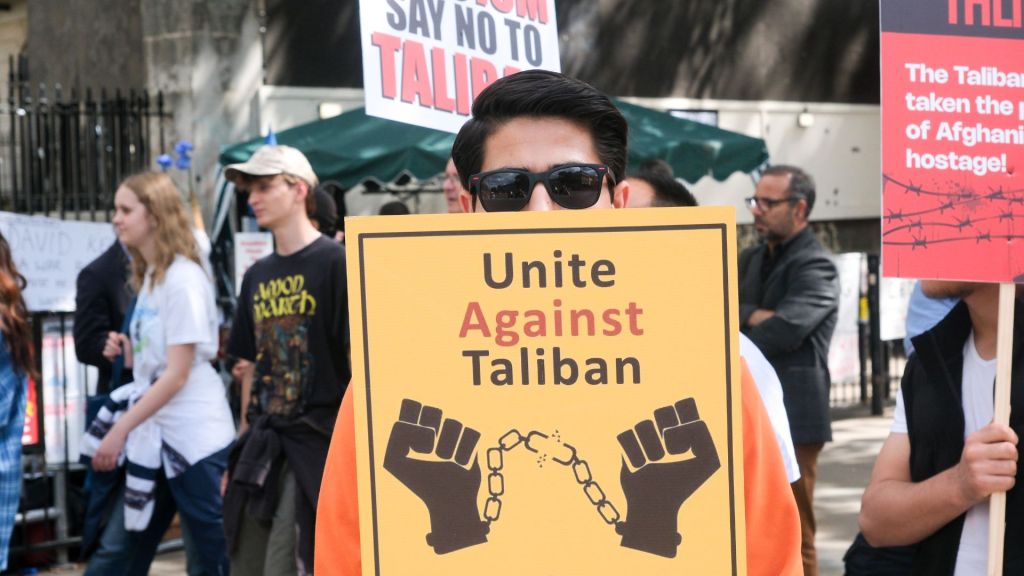How do the Taliban, who ‘know what a woman is’, treat women in Afghanistan?

Student in Afghanistan. (Credit: Getty Images)
Radio presenter and columnist Julia Hartley-Brewer has been at the centre of widespread controversy after she made comment on X, formerly known as Twitter, referring to the Taliban in reference to trans rights.
The presenter, 55, was slammed as “bigoted” and “transphobic” after her tweet on Tuesday (29 August), which appeared to joke about a man who had been compared to the Taliban for his support of the trans community.
Hartley-Brewer’s comment came after an LGBTQ+ journalist claimed he had been compared to the Taliban – which he described as “a group that beheads and murders women and gay people” – for his support of the trans community.
Reposting this, Hartley-Brewer commented: “At least the Taliban know what a woman is.”
She was met with hundreds of comments, with one user tweeting: “This is honestly one of the most disgusting anti-LGBT and misogynistic tweets I’ve ever seen.”
Conversations on ‘what is a woman’ have moved from conversations among fringe anti-trans campaigners to mainstream politics, with both prime minister Rishi Sunak and home secretary Suella Braverman using the dogwhistle to attack Labour leader Keir Starmer in 2023.
Responding to fierce criticism over the tweet, Hartley-Brewer explained she doesn’t support the Taliban, and those who took offence should “get a grip”.
But the Taliban, since taking power in Afghanistan after an uprising in 2021, have greatly rolled back both women’s and LGBTQ+ rights in the country.
This is why so many people have taken offence at the TalkTV host’s words, as she spoke proudly of sharing views on trans people with the group described by the United Nations as committing “gender apartheid” against women and girls.
The Taliban’s takeover of Afghanistan
According to Amnesty, the Taliban emerged in 1994, and ruled in Afghanistan from 1996 until 2001.
During this time, women and girls faced discrimination in daily life. They were banned from going to school, studying, working, leaving the house without a male chaperone, showing their skin in public, accessing healthcare delivered by men, and being involved in politics.
Women were routinely stoned to death if they were accused of adultery, and men could commit domestic violence, rape, or even kill female family members without being held to justice.
In the years following the Taliban’s fall, progress was made in terms of gender equality in Afghanistan, with some schools allowing female students, and some women returning to work. However the Taliban’s legacy remained, and in 2011 Afghanistan was named “the most dangerous country” to be a woman.
The Taliban returned to power in Afghanistan in August 2021.
According to the Associated Press, since the 2021 Taliban takeover, women and girls have been ordered to cover up their entire bodies except for their eyes, banned from using gyms and parks, and barred from attending secondary school and university, while beauty salons have been ordered to shut down and public floggings have returned.
In March 2023, the UN claimed Afghanistan has become the most repressive country in the world for women and girls, with many “effectively trapped in their homes”.

Women and the LGBTQ+ community
The United Nations has described the Taliban’s treatment of women as “gender apartheid”.
In a joint report to the UN Human Rights Council, Richard Bennett and Dorothy Estrada-Tanck said: “Women and girls in Afghanistan are experiencing severe discrimination that may amount to gender persecution … and be characterised as gender apartheid”.
The report continued: “While the backlash against women’s and girls’ rights has unfolded in different countries and regions in recent years, nowhere else in the world has there been an attack as widespread, systematic and all-encompassing on the rights of women and girls as in Afghanistan.”
The report explained that as women and girls are restricted from accessing medical care, Taliban rule poses an extreme risk to women’s health.
“As girls and women can be provided care only by female doctors, unless the restrictions are reversed rapidly, there is a real risk of multiple preventable deaths, which could amount to femicide,” the report stated.
As well as inhumane treatment of women, the Taliban is known to be highly intolerant of the LGBTQ+ community, with many queer people fleeing the country after the takeover to avoid being murdered by the regime.

As well as horrifying stories of murder, assault and public floggings of LGBTQ+ people in Afghanistan, queer refugees have also spoken to PinkNews about their “traumatic” journeys to flee the country.
Gay medical student Sohil managed to escape to Pakistan after the Taliban takeover, but says he no longer has “any hope” for his future.
He told PinkNews he was burned with scalding water by a Taliban official for wearing “western” clothes, and imprisoned for three days while officers beat him and searched his phone.
Thanks to advocacy groups, Sohil was able to secure a visa and travel to Pakistan, but he is now looking to seek refuge elsewhere, where he can openly be himself.
“I don’t have any hope right now,” he told PinkNews. “It’s the same as Afghanistan, everyone treats us like s**t. I’m really scared of people nowadays.
“I want to be myself again – I don’t want to live in the shadows. I hope it will happen but I don’t have any hope now. I don’t know what will happen because nothing has changed – it’s been more than one year and I’m still stuck. One year of my life, gone for nothing.”
Another LGBTQ+ activist from Afghanistan added: “There are more than 500,000 LGBTQ+ people in Afghanistan and they are hiding from themselves because they will get murdered.”
PinkNews has contacted TalkTV and Julia Hartley-Brewer for comment.

